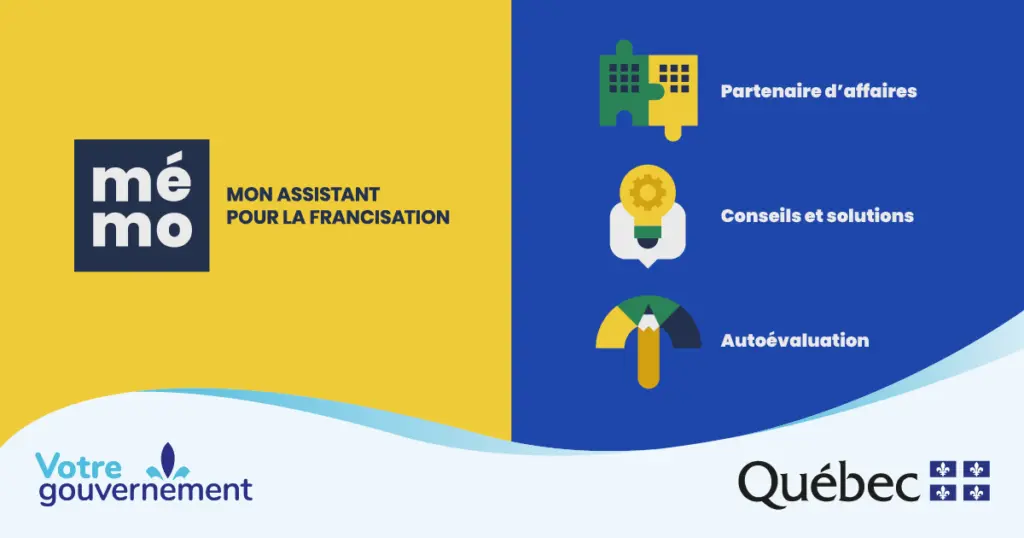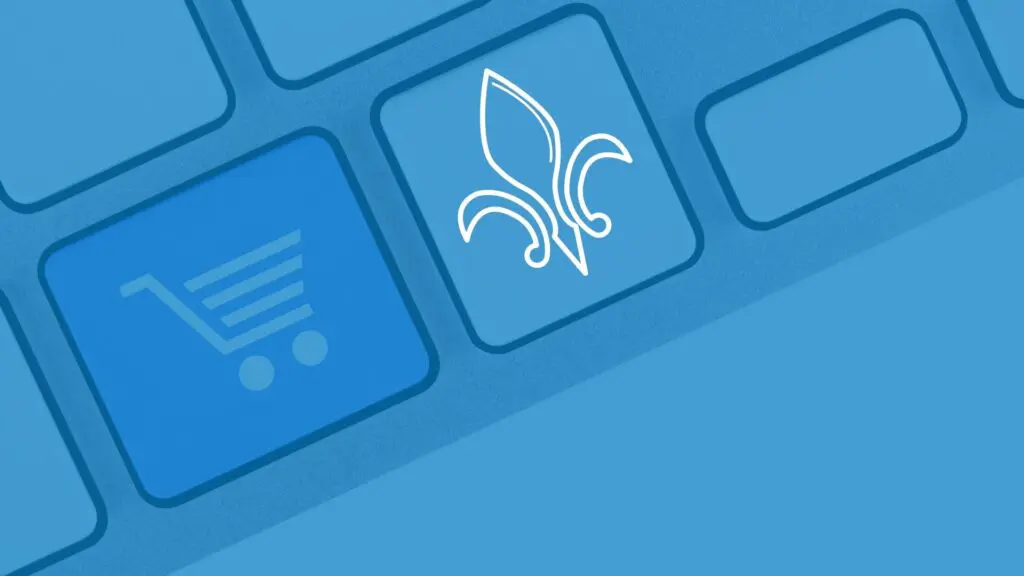
Anik Pelletier
Anik Pelletier est vice-présidente du service de Langage de marque chez Bleublancrouge Communications. Elle évolue dans le milieu de la traduction depuis près de 30 ans et s’occupe de questions de francisation depuis plus de 20 ans.
Le projet de loi n° 96, Loi sur la langue officielle et commune au Québec, le français déposé le 13 juin 2021 prévoit que les entreprises comptant de 25 à 49 employé·es seront assujetties aux mêmes obligations que celles qui emploient 50 personnes ou plus. Dans ce contexte, certaines recommandations considérées comme de bonnes pratiques aujourd’hui pourraient devenir des dispositions obligatoires lors de l’entrée en vigueur dudit projet de loi.

Anik Pelletier est vice-présidente du service de Langage de marque chez Bleublancrouge Communications. Elle évolue dans le milieu de la traduction depuis près de 30 ans et s’occupe de questions de francisation depuis plus de 20 ans.

I won’t be telling you anything new by saying that technology is more present in our lives than ever. This has been especially true over the past year, as life has taken on a virtual dimension and many retailers have had to quickly turn to online sales to ensure their survival. In the Portrait of Retail in Quebec, published in November 2020 by Détail Québec, it is estimated that 65% of retailers will have made the digital shift by 2023, whereas this proportion was 36% before the pandemic.
For the majority of players in the retail sector – business owners, staff, and customers – the future lies in the use of IT tools for their daily activities. However, the challenge is twofold for businesses in Quebec: not only must they properly adopt these tools to maximize their potential, but they must also respect linguistic rights and obligations in their online activities.
Indeed, in Quebec, the Charter of the French Language makes French the official language of commerce and business. In this context, retailers must ensure they respect the rights of Quebec consumers. But what are these rights, and how can retailers meet them in an increasingly competitive global market? This is where, I hope, I will share some useful insights to help your business thrive.

Let’s first look at what the Quebec customer base looks like. While reports on the decline of French in certain regions of Quebec continue to emerge, it may be surprising to see how widely French is still used online. A majority of Quebec’s population turns to French-language resources for virtual shopping. Indeed, according to Le Panier bleu, 79% of French-speaking consumers prefer to shop on a French website. “Putting a website online in French is an effective way to show your customers that you care about their satisfaction and that you can meet their needs and expectations. It also has the advantage of making navigation on your website easier and enhancing its appeal to Quebec customers. A huge asset at a low cost!”
Additionally, a 2018 study showed that a quarter of Quebec consumers never use a language other than French to search for information about a product online. This means that as a retailer, if you do not use French in your online tools (website, transactional site, social networks), you risk depriving yourself of a significant portion of your potential customer base. Using French for your technological tools is therefore no longer just a matter of law, but of common sense.
So, what rules do businesses operating in Quebec, particularly retailers, have to follow? Trust me, it’s not as complicated as it seems.

Before diving into the specifics, it would be useful to clarify what is meant by technological or digital tools. In its guide “Je clique en français,” the OQLF defines information and communication technologies as follows: “This encompasses all hardware, software, and services used for the collection, processing, and transmission of information in French. The term ‘informatics’ generally refers to the field of information technologies, and the term ‘multimedia’ defines the sector of informatics, which includes the world of communications and interactive media.”
By hardware, we mean keyboards, printers, fax machines, and various data input or output peripherals. Regarding software, we refer to application software (e.g., word processing, spreadsheets, email applications, etc.), operating systems, tutorials, and device drivers, among others. Services refer to online interfaces used for commercial transactions, document exchanges, or technical support.
Let’s focus on the digital tools you use to interact with your customers. The law is clear: being informed and served in French is a fundamental right in Quebec. You are therefore obligated to provide your products and services in French on your commercial platforms. Your website must be in French. If, like many retailers, you have adopted online commerce, your transactional tools must be in French, including your order forms, product or service descriptions, payment platforms, receipts, order confirmations, delivery tracking, and so on.
One seemingly trivial aspect that tends to be overlooked is the use of accents. It can be disappointing or annoying for a portion of your potential clientele if they cannot use accents (like é, è, ç) in your online tools, such as order forms. Moreover, there are cases where the system converts these accents into a series of unintelligible characters like &;Nsp. Therefore, you must be extra vigilant in choosing your tools to avoid frustrating users or ending up with errors in addresses, for instance. For more information on special characters to include in your systems, refer to the OQLF’s guide on Quebec’s cultural and linguistic characteristics.
By adhering to these guidelines, you not only comply with the law but also demonstrate respect and consideration for your French-speaking customers, enhancing their overall experience and satisfaction.

If you use social media to promote your business and interact with your customers, your posts must be at least in French, though they can be accompanied by another language. This also applies to information about your business (such as the About section on Facebook). Interactions with your followers can be in their preferred language (if you are proficient in it, of course), but if someone addresses you in French, you must respond in French. I would even say that this is not just a matter of regulation but also a matter of respect for your customers.
You likely know that most social media platforms offer the ability to detect your preferred language. From a retailer’s perspective, this feature is particularly useful for targeting messages to specific consumer profiles or geographic areas. Thus, if you do business in various markets, you can use language detection to ensure your message is delivered in the right language, to the right place.
However, nothing prevents you from doing everything in French; this would contribute to its prominence beyond the province’s borders. I encourage you to consult the OQLF’s guide on social media for more information. It is full of tips and even includes step-by-step instructions for creating French-language accounts on platforms like Facebook, LinkedIn, or Instagram. In short, do not hesitate to consult resources from organizations like the OQLF and the CQCD to guide you in your francization efforts.

From the outset, I must specify that we will focus here on businesses with fewer than 50 employees, as this applies to a majority of our readers. The Charter of the French Language imposes additional obligations for companies with more staff. Regarding work tools, here’s what you should always keep in mind: Quebec workers have the fundamental right to carry out their activities in French. Therefore, you are obligated to implement mechanisms and best practices to protect this right. What does this mean in practical terms? It means that you must provide computer equipment and software in French to members of your team working in Quebec, unless there is no French version available on the market.
If, despite the proliferation of software and applications in multiple languages on the market, you choose versions that are not available in French, remember that your French-speaking employees may see their productivity affected when using tools in a language they may not master as well as their mother tongue. This is something to carefully consider in today’s world, where everything moves quickly and productivity is a key factor in business success.

L’OQLF offers a wide range of tools, as you have seen in reading this article. Last March, the Office unveiled “Mémo, mon assistant pour la francisation,” which includes brand new support services specifically designed for businesses with fewer than 50 employees. The Office also provides numerous excellent reference tools, such as specialized lexicons, its Grand dictionnaire terminologique (comprehensive terminology dictionary), and its Banque de dépannage linguistique (linguistic help desk).
If you haven’t yet made your digital transition or if you want to further enhance your efforts, as part of its program “Le français, au cœur de nos ambitions,” the Office financially supports various organizations in developing projects that promote digital transition in French for businesses and retailers. These organizations may include chambers of commerce or business development corporations. Contact these organizations in your region to learn more about the support available.

As you can see, francization in information technology is not as complex as one might think. In addition to enabling you to reach a significant potential clientele, it constitutes a real asset for the future of your business. Indeed, if you aim for growth but do not equip yourself properly, you may encounter barriers, as larger companies have more extensive francization obligations. You are also aware that the current government promises tightening of the Charter, especially concerning businesses with fewer than 50 employees. So, as the saying goes: prevention is better than cure!